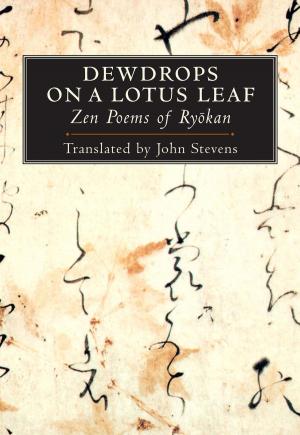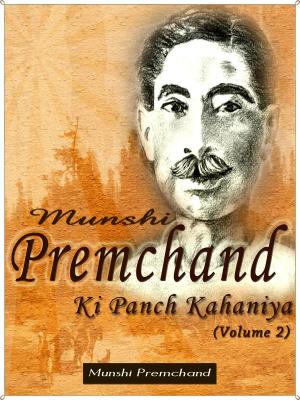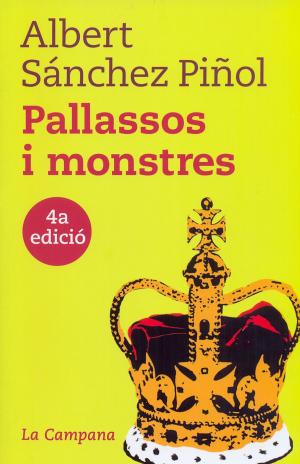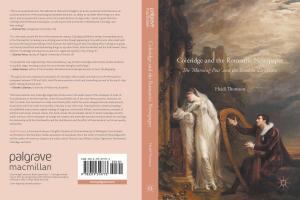| Author: | Odiedo Stephen | ISBN: | 9781386116738 |
| Publisher: | Odiedo Stephen | Publication: | September 5, 2017 |
| Imprint: | Language: | English |
| Author: | Odiedo Stephen |
| ISBN: | 9781386116738 |
| Publisher: | Odiedo Stephen |
| Publication: | September 5, 2017 |
| Imprint: | |
| Language: | English |
For millennia Pharaoh Akhenaten (reigned from 1351BC to 1334 BC) has been the outcast per excellence among ancient Egypt's long line of rulers. In ancient Egypt, after his reign was over he was branded "Sebiu" - the accursed heretic, the benighted one who would never from then on - forever and a day - be referred to by name. When he died his new city Akhetaten was razed to the ground, his sacred names were all plucked down from the monuments or were altered by the pharaoh's who came after him to honour themselves. Immediately after Pharaoh Akhenaten's death, a determined and thoroughgoing restoration took place in ancient Egypt. Originating from within the ancient ( and now fully back in charge) priesthood focused on the old gods and centred in ancient Karnak of Ra-sun god, a great project of damnatio memoriae got underway: its goal - the eradication of every trace of the unfortunate and hated reign of the despised and forever to be damned Pharaoh Akhenaten. Everything about his and his reign was to be erased - every trace and memory of this pharaoh whom every pharaoh who came after hated with an especial hatred and fury. His statues were either defaced or remodeled unto the likenesses of the Pharaohs who came to rule ancient Egypt after him - and the only reference that would be allowed Pharaoh Akhenaten was Sebiu! Damned heretic and benighted traitor against Kermit sacred land and against the immortal gods themselves.
What was Pharaoh Akhenaten's crime against ancient Egypt and against ancient Egypt's deathless gods? What was this terrible deed that so angered the gods and all of Ancient Egypt that it has for millennia earned him this damning of the soul, this act of collective erasure from memory, this banishment that has proved one of the most enduring and successful acts of damnatio memoriae in the world against an individual? Nations have always had enemies within and enemies outside their borders. Sometimes a ruler may declared his predecessor an enemy of the state and order their memory erased from the public record. Stalinist Russia is the most recent example of how a person could be damned and their memory erased from the public record. One of the most notorious examples of this is how Joseph Stalin ordered the public record purged of all traces of Nikolai Yezhov his erstwhile chief of the secret police. Nikolai Yezhov who presided over the genocidal great purge in Russia as head of the secret police under Russian dictator Joseph Stalin. Yezhov had replaced Yagoda who he had tortured and then shot. After being tortured and shot all memory of Yezhov was purged from the public record. It was one of the most thoroughgoing acts of damnatio memoriae in the modern world: even pictures in which Yezhov had been shown standing next to Stalin were altered to remove Yezhov’s image. After the purge of Yezhov all records of his existence were erased. Yezhov ceased to be, it was as if he had never existed in Stalinist Russia.
One of the most famous victims of the act of damnatio memoriae was Pharaoh Akhenaten. When he came to power Pharaoh Akhenaten, like every pharaoh before and since his time, was encased in the ceremonial ritual that surrounds all pharaohs - the pharaoh is god incarnate on earth - HE is the representative of the gods come down to earth to bestow divine favour on a benighted humanity. As dramatised and narrated in the epic AKHENATEN Pharaoh Akhenaten's crime was to tear down the fabric of this great mystique that surrounds the person of the pharaoh and to rule as a mortal among men. This is the first great crime against which both god and humanity have not forgiven Pharaoh Akhenaten for, now, close on three millennia.
For millennia Pharaoh Akhenaten (reigned from 1351BC to 1334 BC) has been the outcast per excellence among ancient Egypt's long line of rulers. In ancient Egypt, after his reign was over he was branded "Sebiu" - the accursed heretic, the benighted one who would never from then on - forever and a day - be referred to by name. When he died his new city Akhetaten was razed to the ground, his sacred names were all plucked down from the monuments or were altered by the pharaoh's who came after him to honour themselves. Immediately after Pharaoh Akhenaten's death, a determined and thoroughgoing restoration took place in ancient Egypt. Originating from within the ancient ( and now fully back in charge) priesthood focused on the old gods and centred in ancient Karnak of Ra-sun god, a great project of damnatio memoriae got underway: its goal - the eradication of every trace of the unfortunate and hated reign of the despised and forever to be damned Pharaoh Akhenaten. Everything about his and his reign was to be erased - every trace and memory of this pharaoh whom every pharaoh who came after hated with an especial hatred and fury. His statues were either defaced or remodeled unto the likenesses of the Pharaohs who came to rule ancient Egypt after him - and the only reference that would be allowed Pharaoh Akhenaten was Sebiu! Damned heretic and benighted traitor against Kermit sacred land and against the immortal gods themselves.
What was Pharaoh Akhenaten's crime against ancient Egypt and against ancient Egypt's deathless gods? What was this terrible deed that so angered the gods and all of Ancient Egypt that it has for millennia earned him this damning of the soul, this act of collective erasure from memory, this banishment that has proved one of the most enduring and successful acts of damnatio memoriae in the world against an individual? Nations have always had enemies within and enemies outside their borders. Sometimes a ruler may declared his predecessor an enemy of the state and order their memory erased from the public record. Stalinist Russia is the most recent example of how a person could be damned and their memory erased from the public record. One of the most notorious examples of this is how Joseph Stalin ordered the public record purged of all traces of Nikolai Yezhov his erstwhile chief of the secret police. Nikolai Yezhov who presided over the genocidal great purge in Russia as head of the secret police under Russian dictator Joseph Stalin. Yezhov had replaced Yagoda who he had tortured and then shot. After being tortured and shot all memory of Yezhov was purged from the public record. It was one of the most thoroughgoing acts of damnatio memoriae in the modern world: even pictures in which Yezhov had been shown standing next to Stalin were altered to remove Yezhov’s image. After the purge of Yezhov all records of his existence were erased. Yezhov ceased to be, it was as if he had never existed in Stalinist Russia.
One of the most famous victims of the act of damnatio memoriae was Pharaoh Akhenaten. When he came to power Pharaoh Akhenaten, like every pharaoh before and since his time, was encased in the ceremonial ritual that surrounds all pharaohs - the pharaoh is god incarnate on earth - HE is the representative of the gods come down to earth to bestow divine favour on a benighted humanity. As dramatised and narrated in the epic AKHENATEN Pharaoh Akhenaten's crime was to tear down the fabric of this great mystique that surrounds the person of the pharaoh and to rule as a mortal among men. This is the first great crime against which both god and humanity have not forgiven Pharaoh Akhenaten for, now, close on three millennia.















